Tropical forage legumes for environmental benefits: An overview
DOI:
https://doi.org/10.17138/tgft(6)1-14Abstract
Ruminant livestock production in the tropics, particularly when based on pastures, is frequently blamed for being detrimental to the environment, allegedly contributing to: (1) degradation and destruction of ecosystems, including degradation and loss of soil, water and biodiversity; and (2) climate change (global warming). In this paper we argue that, rather than being detrimental, tropical forage legumes can have a positive impact on the environment, mainly due to key attributes that characterize the Leguminosae (Fabaceae) family: (1) symbiotic nitrogen fixation; (2) high nutritive value; (3) deep-reaching tap-root system; (4) wide taxonomic and genetic diversity; and (5) presence of particular secondary metabolites. Although there are also potential negative aspects, such as soil acidification and the risks of introduced legumes becoming invasive weeds, we submit that legumes have potential to contribute significantly to sustainable intensification of livestock production in the tropics, along with the provision of ecosystem services. To further assess, document and realize this potential, research for development needs in a range of areas are indicated.
Keywords: Biodiversity, ecosystem services, GHG emissions, land rehabilitation, soil enhancement, symbiotic nitrogen fixation.
DOI: 10.17138/TGFT(6)1-14



